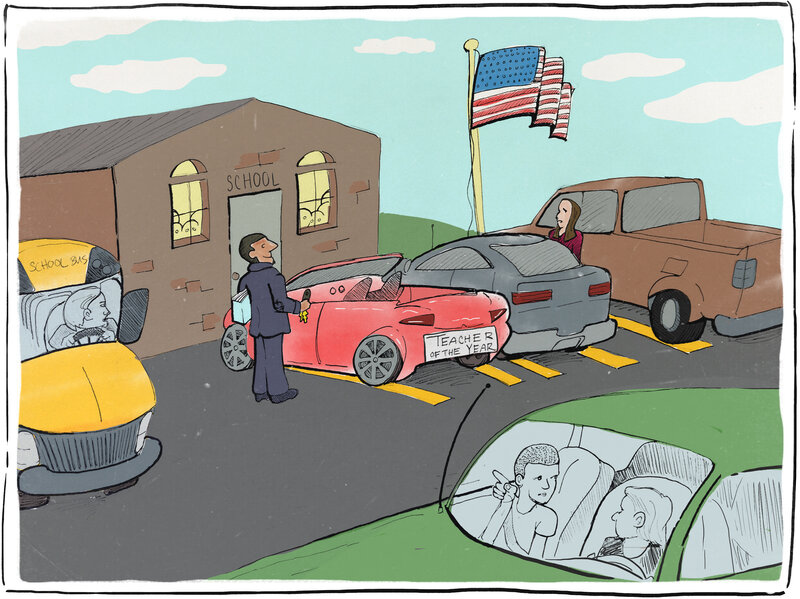Does It Pay To Pay Teachers $100,000?

We're brought up to believe our teachers are modern-day saints.
Just look at how we portray them in the movies and on TV. From Dead Poets Society's iconic Mr. Keating to resourceful LouAnne Johnson in Dangerous Minds, we reinforce time and again that teaching is a noble calling.
These teachers are heroes, we're told. It's hard to imagine them even thinking about money.
But their real-life counterparts aren't getting rich, either. The average pay for a teacher in the United States? About $56,000, usually higher in urban districts, lower in rural ones. Add the fact that salaries fell in recent years, and it's probably no surprise that more teachers are leaving the profession, with fewer entering it.
And yet, here and there, in a few places around the country, some teachers have attained what has long been considered a mark of success in this country: a six-figure salary.
One place you can find them is Washington, D.C. After 14 years teaching in the nation's capital, Hope Harrod is closing in on that magic number.
"I didn't expect to make the kind of money I'm making now," she says.
Sure, $100,000 doesn't put you up there with hedge-fund managers. But it's still good money.
These days, paying teachers that much is "unusual, but not rare," says Dick Startz, an economist with the University of California, Santa Barbara. And it's becoming less rare every day.
The teacher shortages and pipeline problems are leading some school districts back to the drawing board — or chalkboard, rather. And increasingly, one of the things on the table is higher pay — even six figures.
In most places, reaching that magic number still means getting there the old-fashioned way — with a master's degree and 10 or 20 years on the job. And in places like New York state, salaries are given a hefty boost simply because the cost of living is higher, too.
So what's new? A growing number of districts are looking to change that pay structure. The goal: Give teachers, even younger teachers, the chance to earn more. Reward them not for seniority or advanced degrees, but for how well they teach.
Startz called these strides a "very small step" in the right direction. "If we want a large set of people to do a job relatively well, we have to pay them relatively well," he said.
'It's A Really Good Feeling'
Until a few years ago, Hope Harrod made better than the national average for a teacher, but nowhere near six figures. The 40-year-old educator, who teaches fourth- and fifth-graders at John Burroughs Elementary School in Washington, says that changed in 2010. That was the year Michelle Rhee, then the city's schools chancellor, Does It Pay To Pay Teachers $100,000? : NPR Ed : NPR:
